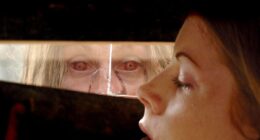Ten years ago, Melissa McCarthy experienced a career peak when she unexpectedly transitioned into the action movie genre. McCarthy rose to fame as an Oscar-nominated scene-stealer in Bridesmaids, and her subsequent comic hits were typical big-studio productions, with outlandish roles paired against straight men or no one in particular. However, her collaborations with Bridesmaids director Paul Feig stood out. The Heat had her team up with Sandra Bullock in a humorous take on the buddy-cop comedy, while Spy took it a step further in 2015.
In Spy, a blend of comedy and big-budget thriller elements, McCarthy played a CIA desk worker given a chance to enter the field. Contrary to typical portrayals, the central joke in the film wasn’t about McCarthy’s character being incompetent; instead, she represented a relatable individual with unique yet effective approaches to completing missions, evolving into a formidable agent. This balance of relatability and dignity in Spy is often challenging for comedies, as they usually rely on surprising twists and deflating serious tones. Action comedies, on the other hand, sometimes prioritize being “cool” over humor, disrupting the comedic flow. Yet, Spy managed to strike a remarkable equilibrium, treating its characters seriously enough for McCarthy-led action sequences to be thrilling while infusing humor into those intense scenes.

Over the past decade, the action comedy genre, already fragile, has faced further deterioration. Its fusion of elements has become emblematic of big-studio uncertainty in the streaming age, vacillating between generic spectacle imitations and underdeveloped humor. Notably, many prominent examples of the genre have become streaming projects, like Jamie Foxx and Cameron Diaz in Back in Action for Netflix, John Cena and Paul Feig in Jackpot! for Prime Video, and Dave Bautista leading the family-friendly My Spy franchise. The original action comedy star, Eddie Murphy, will join forces with Pete Davidson and Keke Palmer for a streaming feature later this summer.
In fact, it’s a bit of a surprise that Bride Hard, a new action-comedy vehicle for Rebel Wilson, is getting a 2,000-screen theatrical release. It all but screams Netflix; McCarthy has been making streaming features for years now. Instead, the movie offers the opportunity to see all the worst elements of the contemporary action comedy (including streaming-ready production values) up on the big screen.
McCarthy and Wilson make appropriate comparison points not so much because of their body types but rather their origins and performance styles. Both broke through as the weirdo sidekicks in Universal comedies (Wilson in the Pitch Perfect movies; McCarthy in Bridesmaids, which also had a small role for Wilson); both of them bring a say-anything, improvisation-heavy energy to their roles; and both seem interested in tweaking familiar genres. (Wilson spoofs rom-coms in Isn’t It Romantic? while McCarthy kids cop-movie familiarity in The Heat.) So it’s not a terrible idea for Wilson to riff on Die Hard as a bridesmaid with a secret life as an ass-kicking spy who must therefore single-handedly save the day when her bestie’s wedding is taken hostage. It’s even cute that Wilson’s Pitch Perfect co-star Anna Camp plays the bestie.
But theaters or not, Bride Hard takes a classic streaming-project turn by hiring a somewhat faded action veteran, in this case Simon West (at his early peak, Con Air), to give a comic movie some semblance of pyrotechnic cred – and then proceed to choreograph some genuinely clunky and poorly assembled action sequences. Granted, Bride Hard isn’t an action picture first and foremost. But if it’s mainly a comedy, why hire the director of The Expendables 2, with no real mastery of comic rhythms? The one passable aspect of the action is the movie’s fight scenes, which aren’t exactly “good” but energetically staged – and Wilson distracts from them by overacting, constantly baring her teeth and screaming despite her character supposedly having done this kind of stuff dozens of times. It does seem like something that would happen in some kind of action-comedy, but one about a practiced super-spy hiding her identity? Why would that happen here, in either half of the genre-blended equation?

It’s not exactly news that a star made a bad action-comedy, but there’s something about Bride Hard that seems distinctly 21st century in its attempt to live in both genres and utter inability to work in either. The movie barely seems to understand its own jokes; when Wilson’s character has a nemesis in the form of her bestie’s sister-in-law (Anna Chlumsky, who deserves better), rather than having this woman make passive-aggressive remarks to the bridesmaid she sees as unreliable, she just says… mean insults that aren’t funny. Some comedy aficionados complain about lines that are written and delivered to sound like jokes, but aren’t; the dialogue in Bride Hard is sort of like that, only less polished, like the filmmakers are guessing about what the soundalike jokes are actually supposed to be.
The whole movie feels weirdly off; no one particularly behaves like a person, obliterating any sense of who the straight man and who the wacky sidekicks might be in this scenario, and the movie is constantly supplying redundant information at random (like a subtitle identifying the location as “private island,” or explaining that the movie actually starting after a credits montage of children playing together is “30 years later”). It’s like the movie was made by people who have only ever seen streaming star vehicles and have no idea that movies can feel less than constantly, pervasively synthetic. It’s strange to watch a movie that should just rip off Spy flail around like this.
Not every recent action-comedy is quite this sloppy or fake-looking. And on the other hand, plenty of beloved action-comedies actually fall down on one or the other genre. (Are the Beverly Hills Cop movies funny, or do they just have Eddie Murphy, who is capable of being funny in generic situations?) What’s notable about the modern action-comedy is how these movies embrace their neither-here-nor-there qualities. There are clips of fake movies made as throwaway gags that have more visible work put into them than something like Bride Hard. (The title even sounds like one of those; it sounds like a joke in a better comedy.) What used to be a tricky balancing act has become an intentional shrug. Is it action? Is it comedy? Eh, who cares? I’s just some movie-shaped stuff that happens.
Jesse Hassenger (@rockmarooned) is a writer living in Brooklyn podcasting at www.sportsalcohol.com. He’s a regular contributor to The A.V. Club, Polygon, and The Week, among others.
(function(d, s, id) {
var js, fjs = d.getElementsByTagName(s)[0];
if (d.getElementById(id)) return;
js = d.createElement(s); js.id = id;
js.src = “//connect.facebook.net/en_US/sdk.js#xfbml=1&appId=823934954307605&version=v2.8”;
fjs.parentNode.insertBefore(js, fjs);
}(document, ‘script’, ‘facebook-jssdk’));
















